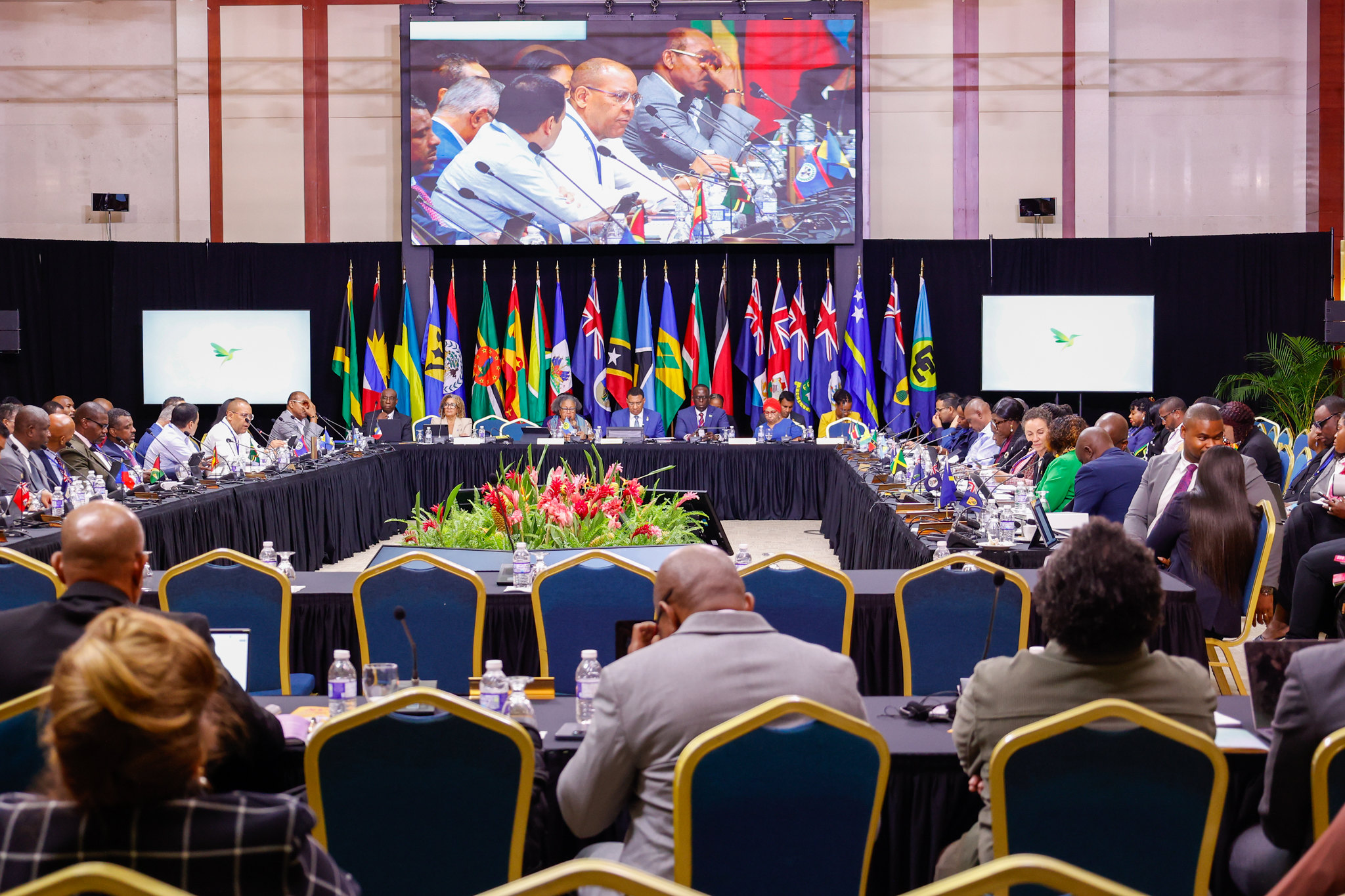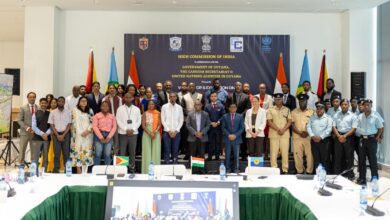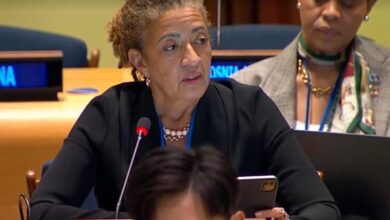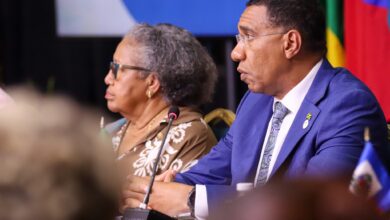Security is a priority area of focus of Chair of the Caribbean Community, Dr. the Most Hon. Andrew Holness, who intends to mobilise the Region to think differently about the scale and magnitude of the problem that is fuelled by drugs, gangs and guns.
“There can be no sustained prosperity without security,” the Prime Minister said, pointing out that urgent action is required to confront the growing problem.
“We must dismantle the influence of gangs in our communities, disrupt their financing, and cut off access to weapons,” Dr. Holness said during his address at the opening of the Forty-ninth Regular Meeting of the Conference of Heads of Government of CARICOM, which ended on 8 July in Montego Bay, Jamaica.
He quoted a 2024 report by the United Nations Office on Drugs and Crime which highlighted the worrying combination of risk factors including surging drug production in South America, the proliferation and competition of transnational and local gangs, and high availability and use of firearms [that] have contributed to soaring homicide rates.
“If the situation in Haiti is an indicator, these are not ordinary times and they require urgent action,” the Prime Minister said.
Acknowledging that the problem cannot be solved overnight, the Prime Minister said it will require “significant investment and unified public support”.
“I am on record as saying that we need to launch a war on gangs of a similar magnitude and nature to the war on terror. Aside from climate change, the threat that poses an existential threat in the near term for many of our states would be the growth of gangs. Many Caribbean states, by virtue of our history and the kind of civilisation we wish to develop, would seem to categorise gangs as a social problem; a problem caused by the alienation of youth, poverty, breakdown of social mores and values, and therefore the policy response must be or should be a social response, one that treats crime and violence as a public health crisis – and basically so, there is no question that it is a social problem why 90 per cent of persons involved in crime are males, and speaking for Jamaica, 90 per cent of those who are victims of homicide are males, so yes, there is that strong social component.
“But I believe that our society, and the way that we think about crime and violence needs to evolve to accept and understand the evolved nature of the challenge we face, and the truth is that what we are now facing is the organisation of violence. It is the organisation of violence for profit. It is not merely street level, dispossessed, socially excluded youngsters. There is a level of intelligence, a level of resources, a level of organisation that has been brought to crime, and violence is being used to support a profit motive and my own view is that policy and jurisprudence needs to evolve to address this matter,” the Prime Minister said.
Underlining the importance of security to the Community’s progress, Heads of Government invited the Secretary General of the International Criminal Police Organisation (INTERPOL), Mr. Valdecy Urquiza, as a special guest to the Meeting.
Jamaica also mounted a security exposition at the Meeting. Prime Minister Holness said the exposition is intended to spotlight “our shared commitment to building a safer, more resilient Region by exchanging ideas, innovations and best practices. It is also an opportunity for you to see how the significant investments made by the Government of Jamaica in national security over the past nine years are yielding results in crime reduction and public safety.”






